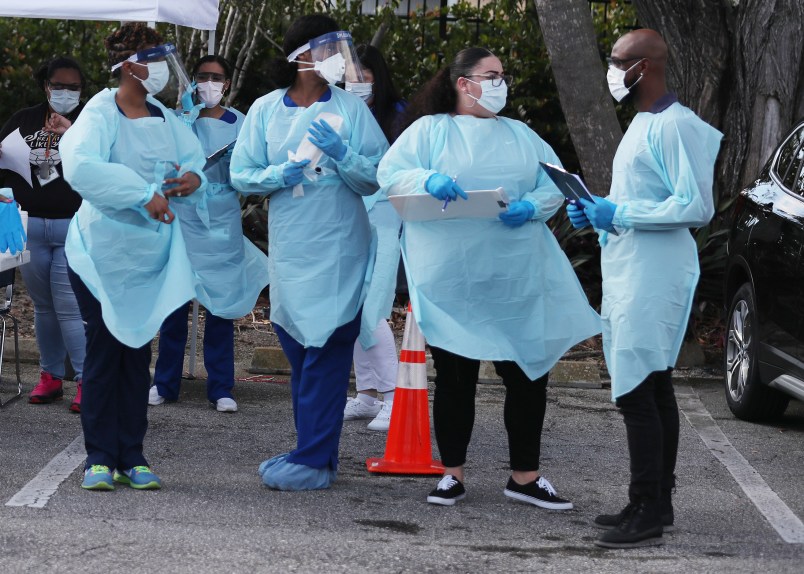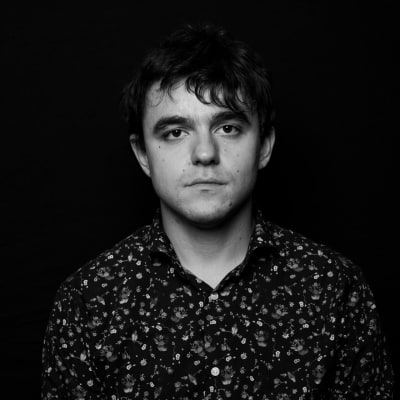Editor’s Note: This story has been substantially revised and updated after an interview with the principal author of the think tank’s COVID-19 work.
There’s a universe of opinion about the novel coronavirus.
But one think tank — the American Council on Science and Health — has pivoted over the course of the epidemic’s growth. The group claimed in the early stages of the disease’s spread that it would be less deadly than influenza, and that the U.S. health care system would be able to handle the virus.
In recent articles, however, it’s asking the same questions much of the media — and the scientific community — are wondering about: is it possible to contain COVID-19? What’s the real fatality rate?
It’s a pivot that has tracked much of the conservative media ecosystem, and even that of the president himself — from initial skepticism about the virus’ potential impact to concern about its deadly potential.
“We follow the data wherever the data goes,” ACSH Vice President of Scientific Affairs Alex Berezow told TPM in a phone call after this article’s initial publication. “And initially the data seemed to indicate that the virus would be something like what we saw with SARS or MERS, these were the previous coronaviruses that caused a major scare in the public health community.”
“And so when I thought there was going to be another coronavirus, I thought it was probably going to replay what we saw before,” Berezow added. “So that was my initial impression; I was wrong. I thought that in the U.S., when the virus got here, we’d be able to squash the virus. And it didn’t happen.”
The group is known in part for stances it has taken on climate change, and has faced criticism for that. It has recently pointed out that winter is a deadlier season than summer (“this may seem counterintuitive, given how much the media hypes summer heat waves”), and spent time over the years deeming global warming “disputed hypothetical events” while criticizing the “consensus science” behind it.
Berezow, who holds a Ph.D in microbiology from the University of Washington, has called former Vice President Al Gore “demented,” but said that it is not an area he focuses much attention on. “Climate change is simply not in our area of expertise,” he said. “We don’t cover it because we don’t have experts on that.”
The group has had a variety of funding sources over the years, including more than $900,000 from the right-wing John M. Olin Foundation and around $600,000 from the F.M. Kirby Foundation.
But what’s interesting about the free market-supporting think-tank is its shift from COVID contrarianism to what became the public health consensus about the effect the virus would have — one that is reflected in some areas of conservative discourse at large.
The flu is ‘far deadlier’ than coronavirus, read a January story that Berezow posted to the group’s website. That put the group in line with the remarks of Rush Limbaugh, who compared the pandemic to the common cold. Another Berezow story, in February, claimed that the country’s health care system was suited to handle the surge of a pandemic, noting that Ebola never spread widely in the U.S.
Berezow pointed out to TPM, however, that in terms of overall fatality rates — not just the death rates of those infected — coronavirus could carry a far lighter death toll than the flu.
“But still, when you want to say, what’s the biggest threat facing the world, you don’t just look at the case fatality rate — you look at the number of people that are going to be infected in total,” he added. “And so, for instance, rabies kills about 100 percent of the people it infects, but it only infects a handful of people.”
“It’s not adequate just to look at the case fatality rate, you have to look at the number of people who you think are actually going to get it, and I think that what we know right now influenza is still a bigger threat, because it infects more people, it kills three hundred thousand, four hundred thousand, five hundred thousand, every year,” he added. “I don’t think we’re gonna see that with COVID-19 this year.”
Berezow has been interviewed about coronavirus in major, mainstream news outlets like the Wall Street Journal, Yahoo News, New York Magazine, and others.
As time has worn on, the group has focused less on publishing about the comparative death rates of the flu and coronavirus. A recent post highlighted that the U.S. is not the next Italy, contra mainstream news reports, while reiterating that the virus itself is serious, and not a hoax.
Berezow emphasized to TPM that he still doesn’t anticipate the novel coronavirus killing more people than the flu on a year by year basis.
“I hope we never see it with COVID-19,” Berezow said. “But I certainly don’t see it, and I think that influenza is the bigger threat.”










